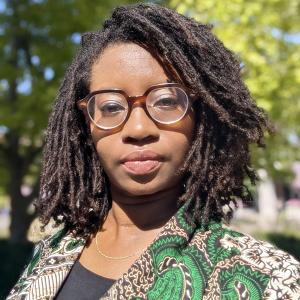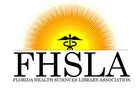Join the team that’s revolutionizing healthcare. BayCare Health System is a leading not-for-profit organization serving the Tampa Bay and West Central Florida regions. Our network includes 16 community-based hospitals, a long-term acute care facility, home health services, outpatient centers, and thousands of physicians. With more than 30,000 team members, BayCare is grounded in values of trust, dignity, respect, responsibility, and clinical excellence. At BayCare, we blend advanced technology with compassionate care—delivering exceptional service while building a healthier tomorrow. If you're ready to grow professionally and make a difference in your community, we invite you to apply for one of the following exciting opportunities: Position 1: Library and Knowledge Management Coordinator-92358 (direct link) Facility: Morton Plant Hospital / St. Joseph’s Hospital Salary: Library and Knowledge Management Coordinator-Req #92358 -$64,168 Responsibilities:
Position 2: Library Service Coordinator-92378 (direct link) Facility: Morton Plant Hospital / St. Joseph’s Hospital Salary: Library Service Coordinator- Req #92378 - $41,018 Responsibilities:
If you’re ready to contribute to a mission-driven team and help support the evolving information needs of healthcare professionals, BayCare invites you to apply today through Careers at Baycare.
Visible Body Courseware is a robust health and life sciences platform loaded with interactive 3D visual content and sophisticated course management tools. VB Courseware does the assignment and assessment work for instructors and gives students a visual and interactive way to learn the material. VB Courseware includes a vast library of 3D models, bite-sized learning modules, animations, histology slides, and simulations, as well as a multitude of accessibility tools and features that ensure no student will be left behind. It also has a built-in gradebook that seamlessly integrates with commonly-used learning management systems like Canvas, Blackboard, Moodle, and more. VB Courseware is a learning management system that gives instructors complete control when designing coursework and assessments for health and life science courses. Instructors can pull from our huge bank of premade assignments and content—which follow the learning paths and commonly-used objectives found in high school and undergraduate A&P and Biology courses, as well as A&P and Biology textbooks—and customize them to suit their needs. They can also create their own 3D lessons, units, and assessments from scratch by using our content, their own content, or a mix of both. Students are guided through a series of paced interactive and visually-engaging activities and formative assessments that include 3D dissection and multiple choice quizzes. As students work through their assignments, their time-on-task and performance is tracked for instructors in the platform's built-in gradebook. Students access the platform through their institution’s LMS, rostering system, or by signing on to the Visible Body website via a web browser. VB Courseware offers accounts for instructors, students, and administrators, Anyone with an administrator Courseware account at an institution can create custom roles, assign permissions, and manage courses for that institution. The VB Courseware software supports a wide range of hardware, browsers, and operating systems and does not require an install. VB Courseware also includes a wide range of keyboard and screen reader support. VB Courseware is perfect for instructors who teach hybrid online courses, who are looking to supplement wet labs or even replace them, or who are simply looking for new ways to engage students. We're pleased to introduce the newly released LibKey Nomad++, an enhanced tool designed to improve access to library resources for clinicians. If you're attending FHSLA, we invite you to learn more at the Third Iron table. This update, powered by article-level intelligence, provides medical libraries with several key advantages:
Shifting the Search Approach: LibKey Nomad++ aims to shift the search paradigm from a "library first" model to one of "library everywhere," thereby increasing library visibility and streamlining clinician workflows. Visit Us at FHSLA: Please stop by the Third Iron table at FHSLA for a brief demonstration of LibKey Nomad++. Post-FHSLA Evaluation Resources: Following FHSLA, we offer the following tools for evaluation:
Reference Materials: Guide to LibKey Nomad++: Reimagining Clinician Workflow: https://www.dropbox.com/s/anu19pc5ys3d2ds/LibKey%20Nomad%2B%2B%20Reimagining%20Clinician%20Workflow%20FHSLA.pptx?st=ockiexdq&dl=0 Guide to LibKey Hybrid Journals: https://www.dropbox.com/s/7g99ad8nfafkojs/LibKey%20Hybrid%20Journal%20Articles%20FHSLA.pptx?st=o4nvphm6&dl=0 PubMed Made Simple: https://www.youtube.com/watch?v=JaaYx0qTk5E Hospital Success Guide: https://thirdiron.com/success-guide/hospital-libraries/ Maximize the value of your collections and research tools with LibKey. Our integrations with key platforms like Cabells, Covidence, ILLiad, EBSCO, ProQuest, OVID, UpToDate, Elsevier, and Micromedex provide powerful article-level intelligence. Explore the complete list of LibKey integrations: https://support.thirdiron.com/support/solutions/articles/72000641449-complete-list-of-3rd-party-libkey-integrations Third Iron Contact: Mark Hyer, Strategic Account Manager [email protected] Work: 202-770-2766 The annual meeting is next week, but registration doesn't close until tomorrow, March 6th! We've love to see you there! For more details and to register, see: https://med-fsu.libguides.com/fhsla2025 For our last speaker highlight, we're introducing our panelists. This panel discussion on predatory publishing aims to shed light on the practices of predatory publishers, who exploit researchers for profit by charging fees for publication without offering legitimate editorial or publishing services. With the increasing pressure to publish and the rise of open-access models, understanding how to recognize, prevent, and protect against predatory publishers is critical for both researchers and institutions. We are fortunate to have 3 excellent panelists! Their biographies are below. Be sure to bring your questions!  Monica Berger is a Library Professor at the New York City College of Technology, City University of New York, who has published extensively on predatory (questionable) publishing including her monograph Predatory Publishing and Global Scholarly Communications (Association of Research and College Libraries, Publications in Librarianship series, 2024). In her publications and presentations, she addresses the marginalization of scholars from the Global South, arguing that the South should develop more quality, diamond open access in order to mitigate predatory publishing and offer local authors better options.  Ruth Bueter, MLIS is the Associate Director of Library Operations of George Washington University's Himmelfarb Health Sciences Library where she coordinates collections, cataloging, resource sharing, the institutional repository, and library systems and technology. Ruth has been working in libraries for 16 years. She earned her Master’s in Library and Information Science from Clarion University of Pennsylvania (PennWest Clarion) in 2012 and her Bachelor of Science in Environmental Science from the University of Toledo in 2002. She has worked at George Washington University’s Himmelfarb Health Sciences Library since 2015. During her time as Serials Librarian at Himmelfarb Library, she became fascinated with predatory publishing and has been educating authors about the dangers of predatory and questionable publishers ever since. Ruth’s scholarly interests include predatory publishing, scholarly communications and publishing, information literacy, open access publishing, electronic resource management, and diversity, equity, inclusion, and accessibility within the library profession.  Karen Burton is an Assistant Librarian at Clemson Libraries where she supports the College of Agriculture, Forestry, and Life Sciences and Clemson Extension. Karen graduated from Clemson in 2003 with a B.S. in Entomology and received her Master's of Library and Information Science from the University of South Carolina in 2021. Karen has worked in many different roles at Clemson over the years from raising beetles for biological control to providing academic support to student athletes as part of the Athletic Academic Services Department. Before joining the Clemson Libraries in 2022 she worked for the University of South Carolina School of Medicine Greenville where she supported the Continuing Medical Education program for Prisma Upstate. Her research interests include predatory publishing, evidence synthesis, and scholarly communication.  The annual meeting is coming soon, but registration is still open! We've love to see you there! For more details and to register, see: https://med-fsu.libguides.com/fhsla2025 . We're highlighting our next speaker today, Bethany McGowan. Bethany is an internationally recognized educator and researcher specializing in information diplomacy, misinformation management, and information literacy interventions. An Associate Professor in the Libraries and School of Information Studies at Purdue University, she leads research on infodemic management, health information-seeking behavior, and the role of libraries in fostering digital equity. A 2023-24 Fulbright Scholar Alumna and recipient of the Estelle Brodman Academic Health Sciences Librarian of the Year award, her work is deeply rooted in community engagement, collaborating with diverse groups to develop inclusive, evidence-based information access strategies. She has secured over $250K in research funding and is committed to empowering communities through service-learning, instructional design, and interdisciplinary public scholarship. Bethany will be teaching a continuing education session on, "Engaging Communities for Information Resilience: Trust-Building Through Information Diplomacy." This talk explores information diplomacy as a strategic approach to strengthening community engagement, enhancing information literacy, and cultivating trust in information ecosystems. Through research insights and real-world case studies, we will examine how communities can be empowered to critically navigate misleading information, apply diplomatic principles to foster meaningful dialogue, and build sustainable, trust-based information networks. |
Blog EditorArchives
May 2025
Categories
All
|

 RSS Feed
RSS Feed